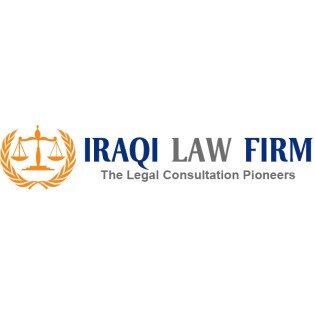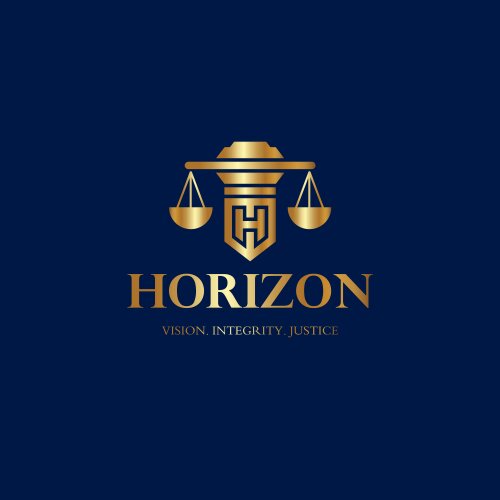Best Oil, Gas & Energy Lawyers in Iraq
Share your needs with us, get contacted by law firms.
Free. Takes 2 min.
Or refine your search by selecting a city:
List of the best lawyers in Iraq
About Oil, Gas & Energy Law in Iraq
Iraq is one of the world's largest oil and natural gas producers, and the energy sector plays a crucial role in its economy. The energy industry in Iraq has been shaped by both its vast natural resources and its tumultuous political history. The country has significant oil reserves, concentrated primarily in the south and in the north near Kirkuk. Iraq’s energy sector is governed by a complex mix of federal laws, regional regulations, and international agreements. This environment provides numerous opportunities as well as challenges for those involved in the oil, gas, and energy sectors.
Why You May Need a Lawyer
There are several common situations where individuals or companies may require legal assistance in the oil, gas, and energy industries in Iraq:
- Negotiating and drafting exploration and drilling contracts.
- Resolving disputes regarding land rights and usage.
- Handling regulatory compliance with national and regional laws.
- Managing environmental impact assessments and sustainability requirements.
- Facilitating joint ventures and partnerships with local entities.
- Navigating tax obligations and fiscal terms specific to the energy sector.
- Dealing with security challenges and political stability issues.
Local Laws Overview
The legal framework governing oil, gas, and energy in Iraq includes a range of laws and regulations:
- Federal Oil and Gas Law - Still awaiting parliamentary approval, this law is intended to unify the legal framework for the management of oil and gas resources.
- Oil Ministry Guidelines - Provides the basis for contract models and terms for international oil companies.
- Regional Management - The Kurdistan Regional Government (KRG) has its own oil policies, leading to dual governing systems in some areas.
- Investment Promotion Law - Offers incentives for foreign investments in the energy sector.
- Environmental Regulations - This encompasses laws that dictate the environmental responsibilities of energy companies to mitigate impacts.
- Taxation and Revenue Sharing - Key legal stipulations for the allocation of oil revenues among federal and regional authorities.
Frequently Asked Questions
What is the current state of oil law in Iraq?
The oil law is under debate. While some legislation is in place, comprehensive laws that cover all aspects of the industry are yet to be agreed upon by the federal government and regional authorities.
How does the division of oil revenues work in Iraq?
The division is a contentious issue. Generally, oil revenues are supposed to be shared between the federal government and regional authorities, but negotiations over specifics are ongoing.
What types of contracts are typically used in Iraq’s oil industry?
The common contract types include production sharing contracts and technical service contracts, each with different provisions and implications for both the government and companies.
Can foreign companies invest in the Iraqi energy sector?
Yes, foreign investments are welcomed, and the Investment Promotion Law offers certain incentives and guarantees to protect investments in Iraq.
Are there any specific security regulations for oil companies in Iraq?
Yes, due to regional instability, companies must adhere to specific security measures to protect their operations and personnel.
What role does the Iraqi Ministry of Oil play?
The Ministry of Oil oversees the development and management of Iraq's oil resources and sets policies for the sector, including the allocation of contracts.
How do local laws affect environmental standards in the oil & gas industry?
Companies are required to comply with various national and international environmental standards to minimize their ecological footprint.
Is there a significant difference between federal and regional policies?
Yes, there are differences, especially with the Kurdistan Regional Government (KRG), which has its own oil and gas policies independent of Baghdad’s regulations.
What legal issues should I watch for in joint ventures?
Attention should be given to terms related to profit sharing, governance structure, dispute resolution, and compliance with local laws.
Why should I consider legal advice before entering the energy sector in Iraq?
Legal advice ensures compliance with the complex legal framework and helps mitigate risks associated with investment, operational, regulatory, and geopolitical challenges.
Additional Resources
For further information and assistance, consider the following resources:
- Iraqi Ministry of Oil - The official authority managing the petroleum sector in Iraq.
- Kurdistan Regional Government Ministry of Natural Resources - Provides insights into regional oil regulations.
- Chambers of Commerce - Offer support for foreign businesses entering Iraq.
- International Energy Agency (IEA) - Provides reports and data on global energy matters including those in Iraq.
- Environmental NGOs - For guidance on meeting environmental requirements and best practices.
Next Steps
If you need legal assistance in Iraq’s oil, gas, and energy sectors, consider the following steps:
- Research: Familiarize yourself with Iraq's energy landscape and identify the specific legal areas where you require help.
- Consultation: Schedule meetings with local legal experts specializing in oil and gas to discuss your situation and get tailored advice.
- Due Diligence: Conduct thorough checks on prospective partners, contracts, and compliance requirements.
- Engage Legal Services: Hire an experienced energy law firm in Iraq to help navigate contracts, negotiations, and regulatory compliance.
- Regular Updates: Stay informed on changes in laws and regulations that may affect your operation.
Lawzana helps you find the best lawyers and law firms in Iraq through a curated and pre-screened list of qualified legal professionals. Our platform offers rankings and detailed profiles of attorneys and law firms, allowing you to compare based on practice areas, including Oil, Gas & Energy, experience, and client feedback.
Each profile includes a description of the firm's areas of practice, client reviews, team members and partners, year of establishment, spoken languages, office locations, contact information, social media presence, and any published articles or resources. Most firms on our platform speak English and are experienced in both local and international legal matters.
Get a quote from top-rated law firms in Iraq — quickly, securely, and without unnecessary hassle.
Disclaimer:
The information provided on this page is for general informational purposes only and does not constitute legal advice. While we strive to ensure the accuracy and relevance of the content, legal information may change over time, and interpretations of the law can vary. You should always consult with a qualified legal professional for advice specific to your situation.
We disclaim all liability for actions taken or not taken based on the content of this page. If you believe any information is incorrect or outdated, please contact us, and we will review and update it where appropriate.
Browse oil, gas & energy law firms by city in Iraq
Refine your search by selecting a city.

















